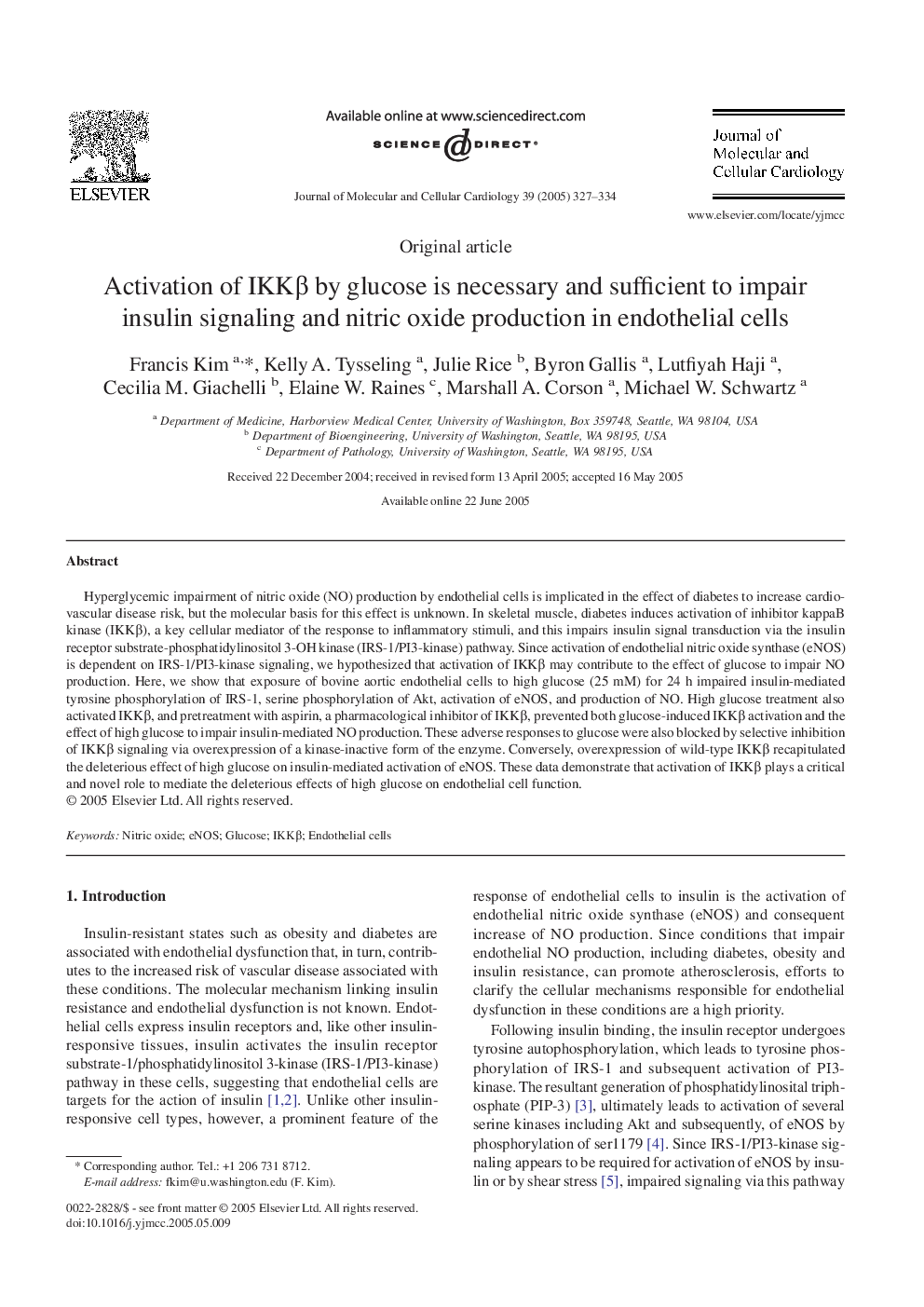| Article ID | Journal | Published Year | Pages | File Type |
|---|---|---|---|---|
| 10954355 | Journal of Molecular and Cellular Cardiology | 2005 | 8 Pages |
Abstract
Hyperglycemic impairment of nitric oxide (NO) production by endothelial cells is implicated in the effect of diabetes to increase cardiovascular disease risk, but the molecular basis for this effect is unknown. In skeletal muscle, diabetes induces activation of inhibitor kappaB kinase (IKKβ), a key cellular mediator of the response to inflammatory stimuli, and this impairs insulin signal transduction via the insulin receptor substrate-phosphatidylinositol 3-OH kinase (IRS-1/PI3-kinase) pathway. Since activation of endothelial nitric oxide synthase (eNOS) is dependent on IRS-1/PI3-kinase signaling, we hypothesized that activation of IKKβ may contribute to the effect of glucose to impair NO production. Here, we show that exposure of bovine aortic endothelial cells to high glucose (25 mM) for 24 h impaired insulin-mediated tyrosine phosphorylation of IRS-1, serine phosphorylation of Akt, activation of eNOS, and production of NO. High glucose treatment also activated IKKβ, and pretreatment with aspirin, a pharmacological inhibitor of IKKβ, prevented both glucose-induced IKKβ activation and the effect of high glucose to impair insulin-mediated NO production. These adverse responses to glucose were also blocked by selective inhibition of IKKβ signaling via overexpression of a kinase-inactive form of the enzyme. Conversely, overexpression of wild-type IKKβ recapitulated the deleterious effect of high glucose on insulin-mediated activation of eNOS. These data demonstrate that activation of IKKβ plays a critical and novel role to mediate the deleterious effects of high glucose on endothelial cell function.
Related Topics
Life Sciences
Biochemistry, Genetics and Molecular Biology
Cell Biology
Authors
Francis Kim, Kelly A. Tysseling, Julie Rice, Byron Gallis, Lutfiyah Haji, Cecilia M. Giachelli, Elaine W. Raines, Marshall A. Corson, Michael W. Schwartz,
